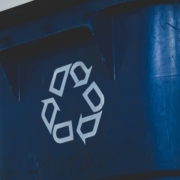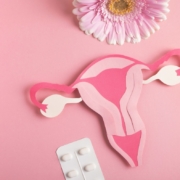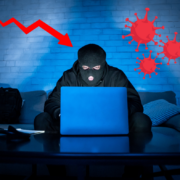Is it a meat product or not?
 By Nailah John, Program Associate
By Nailah John, Program Associate
My husband has a great desire for meatless products, so on my weekly grocery shopping visits, I find myself standing in the freezer aisle for minutes reading the confusing labels on these meatless products. Many of the labels illustrated on the front of the packages usually have an image of a burger or chicken nuggets and can be difficult to distinguish between actually meat products. The packaging displays verbiage like Chik, Steaklet, Well Carved, Chick N’Mix, and are placed in areas where grocery shoppers purchase regular meat products, which makes it all the easier for consumers to mistakenly purchase meatless products.
Plant-based burgers and faux-chicken nuggets are the new trend and many consumers either want to try it or have fallen in love with the product. According to a poll done by Gallup in 2020, 41 percent of adults in the U.S. have tried a plant-based meat product. The study illustrated that about half of Americans are familiar with a plant-based product. The overall takeaway? Plant-based products are in fact getting pretty big so their popularity is growing. Many consumers of plant-based products have expressed that they are cutting back on their meat consumption. Health, the environment, and animal welfare are all cited as major reasons why. With more and more Americans trying these plant-based products labeling should be precise, not misleading.
Many industry leaders continue to recommend that these products should not use wording like “vegan” or “vegetarian” because it may turn away potential customers. It is also suggested that putting meat-free options in a separate vegetarian section of the menu or in the vegetarian section of a grocery store could reduce sales. The term plant-based has been the alternative to the word vegan which is more appealing to the consumers.
However lucrative marketing buzz words may be, the wording and imaging for products should reflect what the consumer is purchasing. This wordplay and product placement tactics are being used to bamboozle consumers.
We all have a right to know what is in our food, how it is produced, and where it is from. We also have the right as consumers to demand clear labeling. It’s challenging to stand in a grocery store for 5 to 10 minutes just trying to be sure that the plant-based product we’re looking to buy is actually plant-based. The labels and imagery do not reflect this by showing chicken-like nuggets, burgers, meatballs, and other imagery that sends a false message to our minds. As a consumer, I no longer want to be confused. I want to be able to easily differentiate between real meat and plant-based meat products.




 By NCL Director of Health Policy Jeanette Contreras
By NCL Director of Health Policy Jeanette Contreras















